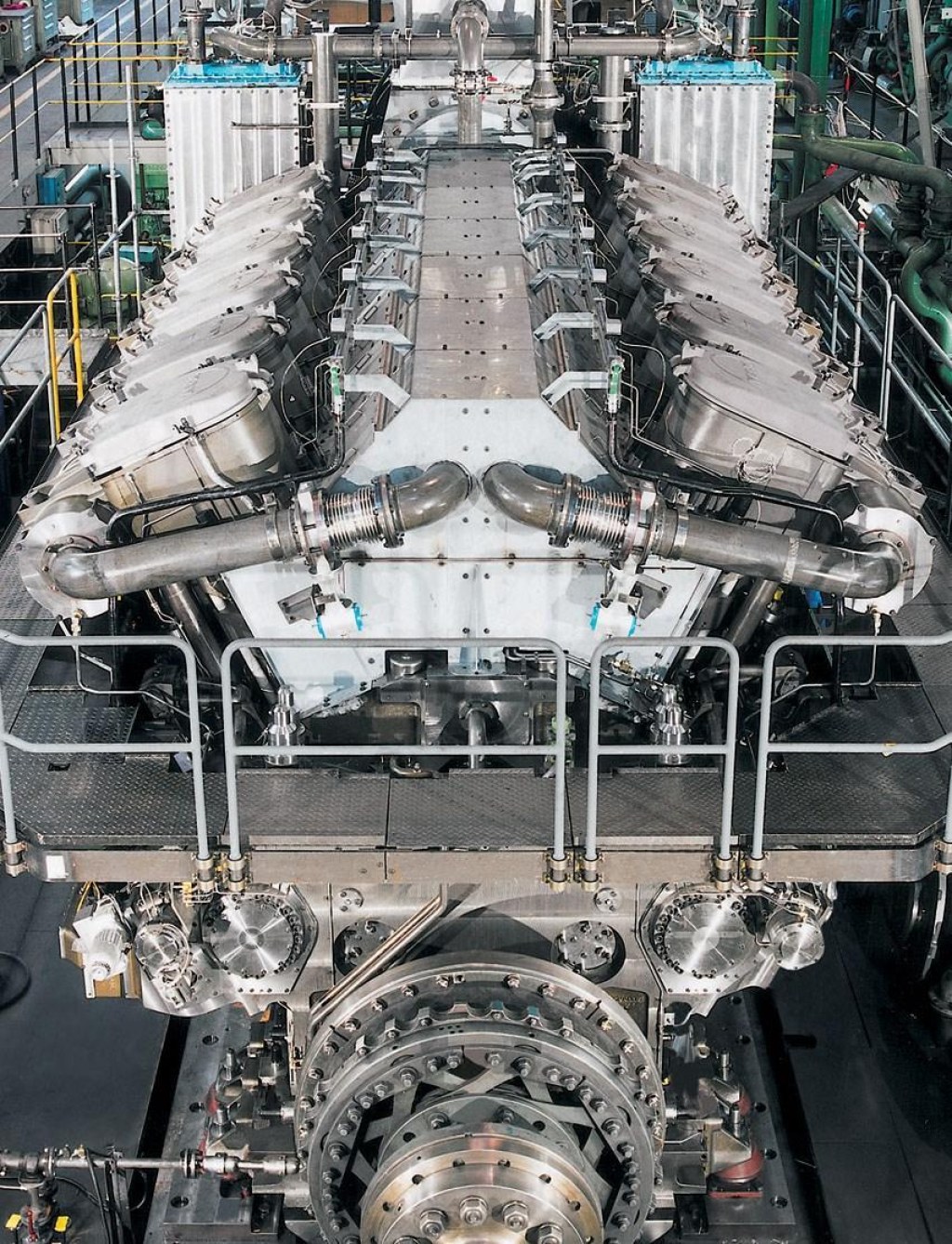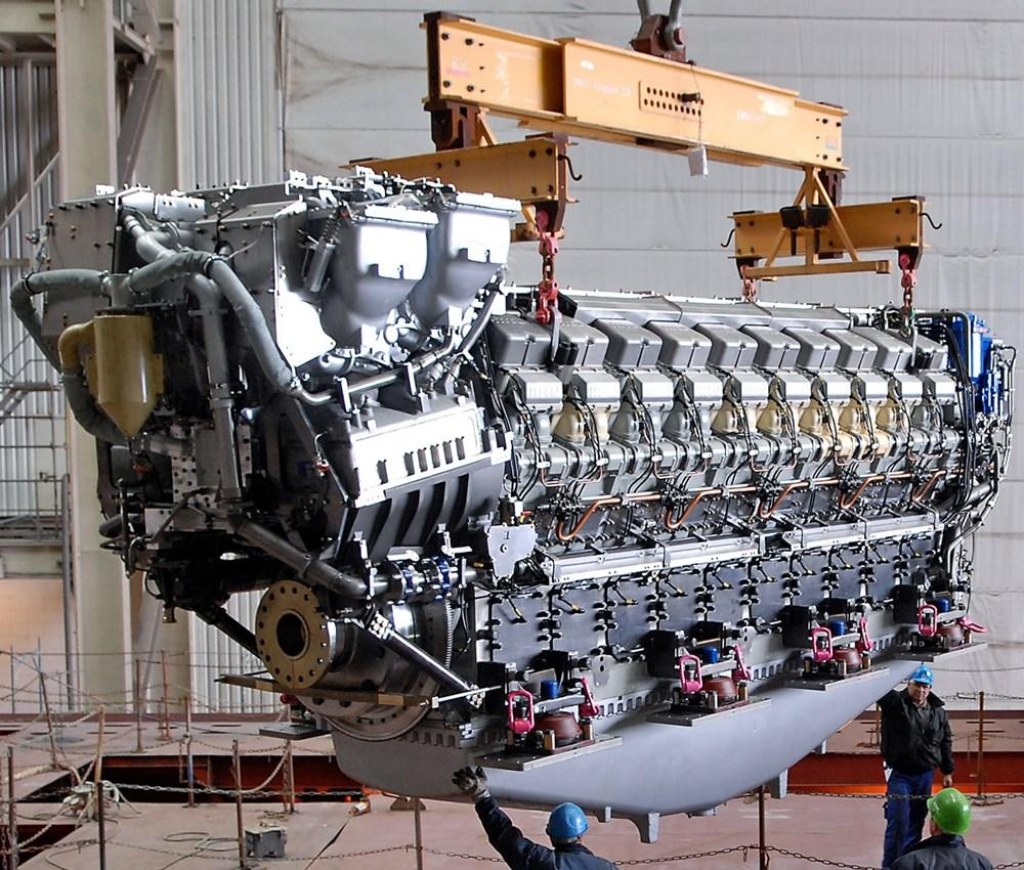Cruise Ship Engine Horsepower: Powering the Giants of the Seas
Introduction
Welcome, cruise ship enthusiasts! Today, we embark on a captivating journey into the world of cruise ship engine horsepower. As avid travelers, we have all marveled at the immense power that propels these majestic vessels across the vast oceans. In this article, we will delve into the fascinating details behind cruise ship engines, exploring their capabilities, advantages, and even a few drawbacks. So fasten your seatbelts and prepare for an exhilarating exploration of the powerhouse behind these floating wonders.
What is Cruise Ship Engine Horsepower?
🔍 Cruise ship engine horsepower refers to the measure of power generated by the engines installed on these mammoth vessels. It determines their ability to propel through the water, making it a critical factor in their performance and speed.
Who Designs and Manufactures Cruise Ship Engines?

Image Source: cruisemapper.com
🔍 Renowned companies such as Wärtsilä, MAN Energy Solutions, and Caterpillar are some of the key players in designing and manufacturing cruise ship engines. These companies employ cutting-edge technology and engineering expertise to produce engines that meet the demanding requirements of the cruise industry.
When Were Cruise Ship Engines First Developed?
🔍 The development of cruise ship engines can be traced back to the mid-19th century. However, it was not until the early 20th century that the engines became more advanced and capable of powering larger and faster vessels. Today, cruise ship engines continue to evolve, incorporating state-of-the-art technologies to enhance efficiency and reduce environmental impact.
Where are Cruise Ship Engines Located?

Image Source: cruisemapper.com
🔍 Cruise ship engines are typically located in the ship’s engine room, which is usually situated towards the aft (rear) of the vessel. These engine rooms are designed to be spacious and well-ventilated, housing multiple engines that work in tandem to propel the ship forward.
Why is Cruise Ship Engine Horsepower Important?
🔍 Cruise ship engine horsepower plays a crucial role in determining the speed, maneuverability, and overall performance of these vessels. With higher horsepower, ships can achieve faster speeds, navigate through adverse weather conditions, and maintain smooth operations throughout the journey.
How are Cruise Ship Engines Powered?
🔍 Cruise ship engines are predominantly powered by diesel fuel, although some ships also utilize liquefied natural gas (LNG) as an alternative fuel source. These engines convert the energy from the fuel into mechanical power, which is then used to turn the ship’s propellers and propel it forward.
Advantages and Disadvantages of Cruise Ship Engine Horsepower
Advantages:
1. 🌟 Increased Speed: Higher engine horsepower allows cruise ships to reach impressive speeds, enabling them to cover greater distances in shorter timeframes.
2. 🌟 Maneuverability: Powerful engines provide cruise ships with better maneuvering capabilities, allowing them to navigate through narrow channels and dock in various ports with ease.
3. 🌟 Safety: Adequate engine horsepower ensures that cruise ships can withstand challenging weather conditions, providing a safe and comfortable experience for passengers and crew.
4. 🌟 Reliability: Cruise ships with robust engines are less likely to experience breakdowns, reducing the risk of disruptions during voyages and ensuring a smooth sailing experience.
5. 🌟 Efficiency: Modern cruise ship engines are designed to optimize fuel consumption, increasing the efficiency and sustainability of these vessels.
Disadvantages:
1. ⚠️ Environmental Impact: Cruise ship engines emit greenhouse gases and contribute to air pollution, which poses challenges in achieving sustainability goals.
2. ⚠️ High Fuel Consumption: Operating powerful engines requires a significant amount of fuel, leading to increased operating costs for cruise lines.
3. ⚠️ Noise and Vibrations: Powerful engines generate noise and vibrations, which can impact the comfort levels of passengers and crew onboard.
4. ⚠️ Maintenance and Repair Costs: Maintaining and servicing high-powered engines can be costly for cruise lines, requiring regular inspections and occasional repairs.
5. ⚠️ Limited Port Access: Some smaller ports may not have the infrastructure to accommodate cruise ships with high engine horsepower, limiting their accessibility to certain destinations.
Frequently Asked Questions about Cruise Ship Engine Horsepower
1. How much horsepower does a typical cruise ship engine have?
A typical cruise ship engine can have a horsepower ranging from 30,000 to 100,000 or more, depending on the size and propulsion requirements of the vessel.
2. Can cruise ship engines operate on renewable energy sources?
While there are ongoing research and development efforts to explore renewable energy options for cruise ships, currently, most cruise ship engines primarily run on diesel fuel or LNG.
3. Are there any regulations regarding cruise ship engine emissions?
Yes, there are international regulations, such as the International Maritime Organization’s (IMO) standards, aimed at reducing emissions from cruise ship engines and promoting environmental sustainability.
4. How do cruise ship engines contribute to the overall carbon footprint of a cruise?
Cruise ship engines contribute to the carbon footprint through the emission of greenhouse gases, such as carbon dioxide (CO2) and nitrogen oxides (NOx). Efforts are being made to reduce these emissions through the use of cleaner fuels and advanced exhaust gas cleaning systems.
5. Can cruise ship engines be upgraded or replaced?
Yes, cruise ship engines can be upgraded or replaced to improve efficiency, reduce emissions, or accommodate new technologies. However, such upgrades or replacements often require substantial investments and may involve significant downtime for the vessel.
Conclusion
In conclusion, cruise ship engine horsepower is the driving force behind these incredible vessels that take us to fascinating destinations around the world. From the immense power generated by these engines to the advantages and disadvantages they bring, understanding cruise ship engine horsepower provides a deeper appreciation for the marvels of modern maritime technology. Whether you are an aspiring traveler or a seasoned cruise ship aficionado, next time you step on board, take a moment to admire the engineering marvels that propel these giants of the seas.
Final Remarks
Thank you for joining us on this enriching exploration of cruise ship engine horsepower. While we have uncovered numerous aspects of this captivating topic, there is always more to discover. As the cruise industry continues to evolve, engines will become even more efficient and environmentally friendly, paving the way for a sustainable future of cruising. As responsible travelers, let us appreciate the marvels of technology while also supporting efforts to minimize the environmental impact of these magnificent vessels. Bon voyage!